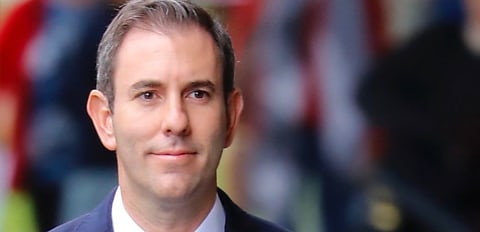Federal Treasurer Jim Chalmers has revealed that the government’s upcoming budget for 2024/25 – set to be delivered on 14 May – will not include any “big cash splashes”, but will “likely” include new measures to help Australians manage the rising cost of living.
Speaking at a CEDA event in Sydney on Thursday (14 March), Treasurer Chalmers said that the Albanese government’s third budget will continue the government’s efforts to manage economic challenges, stimulate growth, and address key priorities such as cost-of-living pressures and sustainable development.
While there have already been a number of budget initiatives already revealed (including stage 3 tax cuts, increased defence spending, paying the super guarantee on paid parental leave, reductions in business compliance costs, and a $4 billion remote housing package for the Northern Territory), Treasurer Chalmers said to also expect more cost-of-living measures.
The Treasurer said: “The three biggest drivers of our thinking about this third budget are global uncertainty; persistent cost-of-living pressures; and slowing growth…
“There will likely be additional cost-of-living help in the budget but it won’t be anywhere near the magnitude of the tax cuts.
“We are already providing a tax cut to every taxpayer, and a bigger tax cut to more workers, we need to be upfront and say that any additional help will only be a fraction of that. Any extra help will be targeted, responsible and affordable.
“There will not be big cash splashes in the budget, simple as that.
“We believe budgets should be shaped by the economic cycle not the electoral cycle. We don’t see cost-of-living help as stimulus. At least not in the way we thought of it in the GFC or the pandemic.
“We see it as a way of taking the pressure off inflation not adding to it. Anything that’s too costly, too splashy, risks undoing the good progress we’ve made together on inflation.”
He said that the upcoming budget will largely focus on:
- “A future made in Australia”.
- The energy transformation.
- A human capital base capable of adapting and adopting technology and catching up and keeping up with changing workplace needs.
- A bigger emphasis on women, wages, and workers in the care economy.
- A big new focus on investment (including focusing on approvals, access to energy, better‑trained workforces, more resilient supply chains, and more effective screening of foreign investment).
He added: “As we fight inflation, build our defences against global uncertainty, and adapt to slowing growth in our economy, our overarching objectives are clear, consistent and continuing: to modernise our economy and maximise our opportunities to benefit middle Australia; to ensure our people and industries are the major beneficiaries of the big changes underway in our society and our economy; and to deliver the best combination of near‑term relief, necessary repair, and longer‑term reform.
“We know the global economy is full of downside risk. We know people are under pressure. We know we can’t yet ring the bell in the fight against inflation. And we know our economy is slowing, quite substantially, as a consequence of higher interest rates.
“We are confident but not complacent, optimistic but realistic, about the year ahead and the decade beyond.”
[Related: Revised tax cuts pass both houses]
